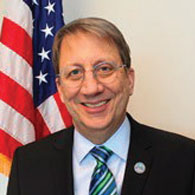Training builds rural health workforce one student at a time
With an average of only 40 primary doctors to take care of 100,000 patients in rural America,* it’s vital to find ways to entice more health care providers to practice rurally. (See Health Professional Shortage Areas graph above.) To fill the gap in care, rural areas must build the proper infrastructure and educational facilities to train medical professionals in the types of unique medical care this community needs. With better infrastructure, research shows that training opportunities can provide the incentive to recruit and retain the health care workforce rural communities so desperately need.
According to the American Association of Medical Colleges, “53.6 percent of the individuals who completed residency training … are practicing in the state of residency training.”** The Department of Veterans Affairs (VA) recognizes this and is focused on expanding programs to build that bridge for residents to enter into rural care.

The VA’s Office of Academic Affiliations (OAA) and Office of Rural Health (ORH) are working together to conduct special education and training programs for health care students and residents to enhance the quality of care provided to veteran patients in its health system. “It is in the best interest of VA — and the nation — to educate a workforce prepared to care for all patients, including our veterans who have special needs, in settings where people reside, often rural,” said Kathleen Klink, M.D., OAA chief of health professions education. Klink’s office is responsible for directing health education programs for more than 120,000 trainees nationwide and ensures high-quality educational initiatives are aligned with student needs in more than 40 different health professions.
“A priority for VA is to provide care for veterans that is accessible, near where they live,” states Dr. Klink. “The provision of high-quality health care is dependent on a well-trained, competent workforce. Clinicians need to be aware of and trained in providing services to respond to the unique health needs veterans may have, such as depression, post-traumatic stress disorder and traumatic brain injury.”
One signature program, the Rural Health Training Initiative (RHTI) was jointly developed by OAA and ORH. It enables health care professionals to spend part of their time at a rural VA facility working with patients under the supervision and guidance of a VA health care instructor. Through a mix of academic learning and hands-on in-person training at a VA medical center, students gain a better understanding of rural health care and the VA health care system. The interdisciplinary program’s focus includes geriatric health care, primary care, dental health, mental health and telehealth.
“Because this is rural health, I think it opens [the trainees’] eyes to what it’s like to practice medicine without multiple referrals,” said one RHTI faculty member. “You’ve got to do a more complete evaluation of the patient and you’ve got to be more confident in your diagnosis before you send them out. I teach them to be more of a whole doctor.”
Jennifer Hayes, Ed.M., OAA evaluations specialist, conducts research and program evaluations to shape the development of educational programs for health professionals. Hayes shared, “We’ve gathered key insights on the RHTI program, including personal qualities enabling a successful trainee experience. Rural health care may be a good fit for students who are assertive and resourceful. Students who do well are often self-starters who are open to new experiences. They are comfortable in ambiguous experiences and sensitive to others’ perspectives and differences.”

Janice Garland, MPH, ORH health systems specialist, oversees a VA program that connects the infrastructure, technology and funding needed for training programs that strengthen rural veteran health care. Garland explains, “ORH works closely with VA’s rural facilities to identify needs and assist the team with infrastructure — including expanded space for trainees and instructors, time for providers to take on training responsibilities, travel and curriculum.”
Students are recruited for RHTI programs locally through the VA facility and its university affiliates. The VA and university staff work together on program development, recruiting and onboarding. Those who pursue RHTI programs are often motivated to care for veterans, and want to try a rural experience. Trainees from both rural and non-rural upbringings have been eager to participate. “The RHTI program provides these students with a chance to serve,” Garland notes. “It’s a wonderful opportunity to learn about providing high-quality health care in a rural area.”
An integrative approach to training
The RHTI program emphasizes an interdisciplinary team approach to health care. “Our program brings together many different disciplines in a patient-centered care model,” said Garland. “That’s what’s unique about this program; it’s a great example of getting real-world exposure.”
The program allows students to gain perspective on what it’s like to practice in a rural area. It helps them understand that health care needs in rural areas are diverse, and sometimes more challenging than in the city due to many patients being sicker and older.
“In VA, pharmacists get to practice at the highest end of our scope and that’s why VA was particularly attractive to me,” said another trainee. “They get to see patients like providers do, we have prescriptive authority, order our own labs — all that stuff. It’s something that only exists in VA.”
Trainees come away with great experiences, including the benefits of working with veterans. “Some veterans travel a long distance for an appointment — and they have multiple health issues to address. The providers want to accomplish as much as possible while they’re in the office, and this patient-centered focus emphasizing ‘what we can do today to help’ has made a lasting impression on students,” OAA evaluations specialist Hayes noted.
Dr. Klink added, “There is good evidence that students and resident trainees who have an opportunity to learn and train in advanced care models such as interprofessional teams and in rural settings will pursue careers in similar settings.”
High demand for rural programs
The greatest hurdles remain in building the infrastructure for these training programs to work. “The challenge is not getting people into the programs — there are more students wanting to do an RHTI rotation than can be accommodated,” said Garland. “The greatest challenge with the RHTI program is an overall shortage of rural clinicians available to train the students and space for trainees.”
Despite these difficulties, the program has proved to be fulfilling, both personally and professionally, for faculty who participate. In evaluations of the program, faculty characterized their role as “rejuvenating,” “invigorating,” and “reaffirming the work mission,” and some noted that working with trainees offered opportunities to stay in touch with cutting-edge changes in their profession.
“It’s not enough to simply draw students and residents to rural communities for training — we must retain them as well,” said ORH Acting Executive Director Thomas Klobucar, Ph.D. “Rural facilities must offer their medical professionals dedicated time for research and other professional development activities if we want to attract and keep dedicated clinicians in rural areas.”
Improving health care for veterans

Training in a rural environment helps develop self-reliant and resourceful providers who are sensitive to the needs and expectations of veteran patients. “RHTI is the pipeline program that attracts students who are not already part of VA, and we have a variety of attractive programs to keep them practicing, engaged, constantly learning, and providing top-of-the-line care,” Garland said. The RHTI program benefits veterans through increased access to care, particularly in rural areas where the provider shortage is a critical issue. “When students have the opportunity to train at a rural VA facility, they come to care more about the population. They are well-trained and committed to the population they are serving, which is a huge value to our rural veterans,” Garland said.
Most students have praised the RHTI program in evaluations, “This training experience has contributed to me wanting to be here; helping me be open to working in a rural setting,” one trainee said through an evaluation of the program. “There was no other rotation that would get the true breadth of experience and going out into rural settings,” adds another who, not long after, joined VA faculty. The RHTI program has successfully trained over 2,000 residents and student trainees in seven facilities over the past four years.
* Hing, E, Hsiao, C. US Department of Health and Human Services. State Variability in Supply of Office-based Primary Care Providers: United States 2012. NCHS Data Brief, No. 151, May 2014.
** Association of Medical Colleges, https:// www.aamc.org/data/448492/c4table.html
